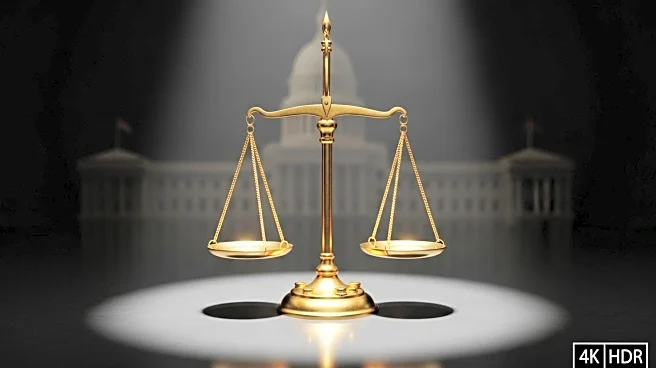What's Happening?
A federal grand jury in Washington has declined to indict Nathalie Rose Jones, who was accused of threatening President Trump on social media. The U.S. Attorney’s Office for the District of Columbia charged Jones with transmitting threats over state lines via Instagram and Facebook. Despite her arrest following a march near the White House, Jones claimed she had no intention to harm the president. Her attorneys revealed that the grand jury found no probable cause for indictment, leading to her release on home detention by Chief District Judge James Boasberg. This decision is part of a trend where grand juries in Washington have refused to indict in several cases related to federal law enforcement actions under President Trump's crime crackdown.
Why It's Important?
The refusal of the grand jury to indict Jones highlights growing local resistance to federal law enforcement measures in Washington, D.C. This trend could impact the effectiveness of President Trump's crime crackdown, as local juries are increasingly unwilling to support federal charges. The situation underscores tensions between federal authorities and local communities, potentially influencing public policy and law enforcement strategies. The outcome may embolden other individuals facing similar charges, affecting the broader landscape of federal crime enforcement in the capital.
What's Next?
The government may attempt to secure an indictment against Jones again, but her attorneys argue that the evidence remains unchanged, making future indictments unlikely. This ongoing trend of grand jury refusals could prompt federal authorities to reassess their strategies in D.C. The situation may lead to further legal challenges and public debates over the balance between federal enforcement and local autonomy.








